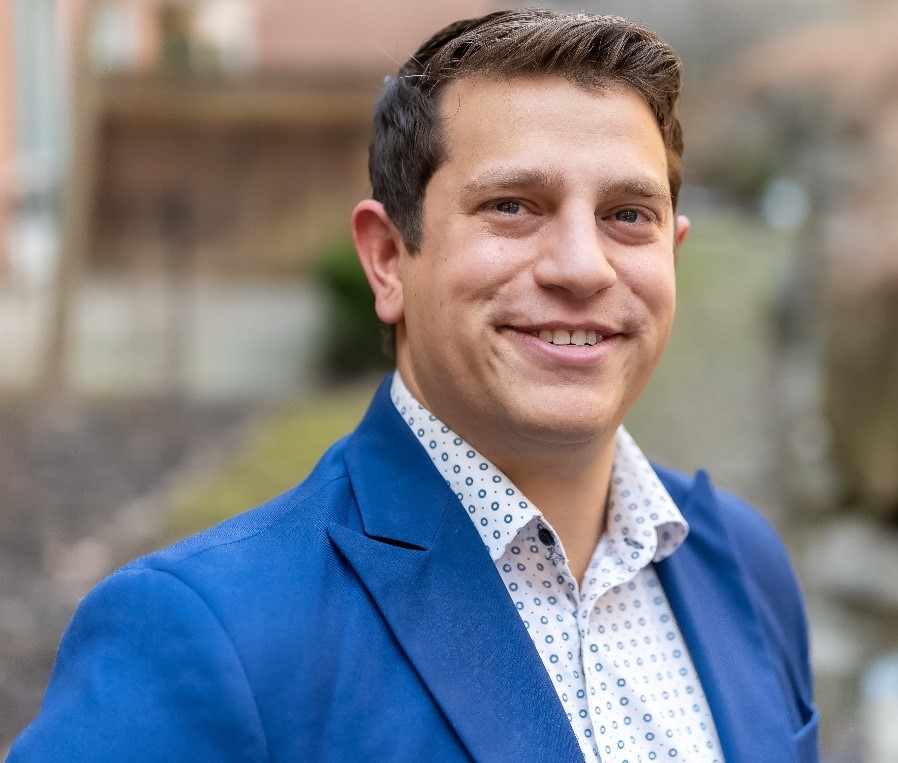When the Chartered Financial Analyst (CFA) Institute denied Jacob Charendoff an accommodation request, he filed a complaint with the Ontario Human Rights Commission. We spoke with Jacob about the process and what motivated him to file a formal application.
1. Tell us about the program you are enrolled in.
I wanted to go into investment banking and venture capital, so I had intended to get the chartered financial analyst designation. The Chartered Financial Analyst (CFA) Institute is a self-directed program with a final exam. I applied to write the first level of the Chartered Financial Analyst exam with the CFA Institute and followed their request for accommodation process, which was to have a medical reference from a professional deeming what the appropriate accommodations would be for me.
2. Walk us through what happened when you made an accommodation request with the CFA Institute. What were you requesting, and how did they respond?
I requested enlarged font and the use of an iPad — with an iPad, I can use Apple's accessibility features on the financial calculator — and extra time. I also asked to write the exam in a private room.
In early 2019, I learned that not all my accommodations would be met. CFA declined the request for enlarged font and the use of the iPad calculator.
Their rationale – enlarging the font size would skew their exam format. They were also concerned with the security features of me using a digital calculator on an iPad.
In remedy, they offered me a reader, scribe and a magnifier, which are not suitable remedies, and I believed the suggested modifications to my accommodation request would have "dis-abled" me further.

3. How did that make you feel?
At first, it was really challenging. I experienced rolling waves of emotion from frustration to anger to feeling overwhelmed. You'd think we're in a society that fosters accessibility, but I was face-to-face with the reality that, this is not the world that we live in. It has been a shifting experience on what inclusivity really means.
4. Recently, CNIB unveiled the Know Your Rights Project, which is plain language legal information and resources (funded by the Law Foundation of Ontario) to empower Ontarians who are blind, partially sighted or Deafblind to better understand their rights, navigate the Ontario legal system and self-advocate to challenge discrimination. How did you know what your rights are, and how did you know what steps you needed to take after your accommodation requests were denied?
It was really intuitive. I felt that my rights had been violated, and I felt strongly that it was an injustice. After speaking with people who work or have worked in the legal field, it gave me the motivation and confidence to file a formal complaint. I am very grateful for the network of people who have and continue to support me on my mission for equality.
5. Why did you decide to file a complaint formally?
From a young age, it was important for me to help stand up for the community and allow anyone with a disability to always be at a level playing field.
I've always been somebody who believes in pushing the envelope to enable change. I believe change really comes from the combination of tenacity, energy, and passion.
The whole premise of this dispute is policy change; that's what I'm looking for. I don't want others to have to go through these ridiculous blanket solutions. We are all individuals and require individual accommodations. In my view, and in others, there's no reason that any institution or organization can't offer appropriate accommodations to those in need.
6. Did you consult with anyone before filling out the complaint "application" with the Ontario Human Rights Tribunal?
The application process is extremely dense and challenging. It's over 20 pages of very litigious material. I was thankful to have a former lawyer help me navigate the application process in the beginning.
I did call The Ontario Human Rights Tribunal, and while I understand they get a large volume of applications I was kind of left hanging, in terms of how to proceed with how to file my complaint.
To be able to really represent yourself at this point from a legal perspective and build a case is difficult. It's very important to have a support system in place to be able to convey your case into a compelling legal package.
7. What has the process been like so far? Do you have any idea of how long it will take for your claim to be heard by the tribunal?
It's been faster than I thought. By no means is there a resolution in sight, but – in terms of what the tribunal has done to move this along – it's moving faster than I expected.
8. What would you say to someone else who believes their rights have been violated?
Control your emotions. It's natural that your initial emotion may be anger. If you can push that anger aside and allow yourself to approach the situation from a place of calm and curiosity, I believe you'll get a lot further in your desired outcome.
9. What's your hope for an expected outcome?
I'd like to see policy changes for the CFA Institute when it comes to their accommodations, application and delivery processes.
I'd also like to shine light on this issue on a broader scale. I'm very confident that this is not the only institution that is suppressing individuals who need accommodations to be successful. Everyone is talking about being accessible and inclusive, but it's a challenge to see what that really means – to change these buzz words into actionable solutions, that's what I'm really looking for.
Read more about Jacob's story on cbc.ca.